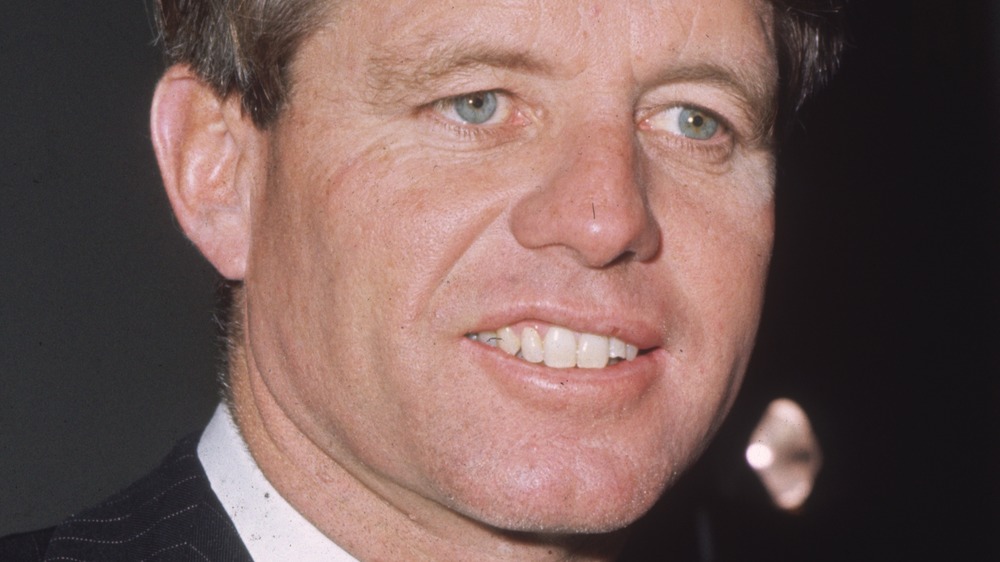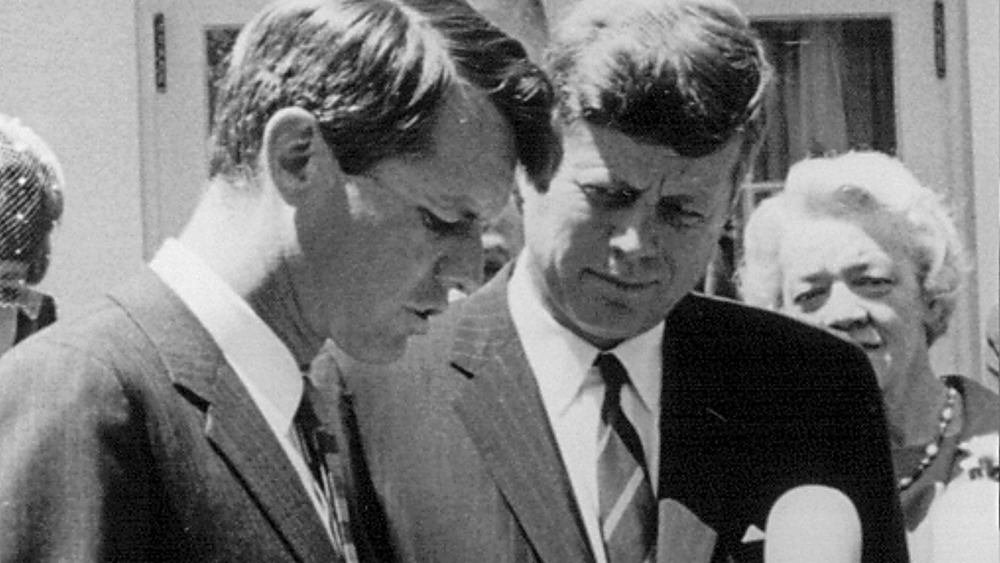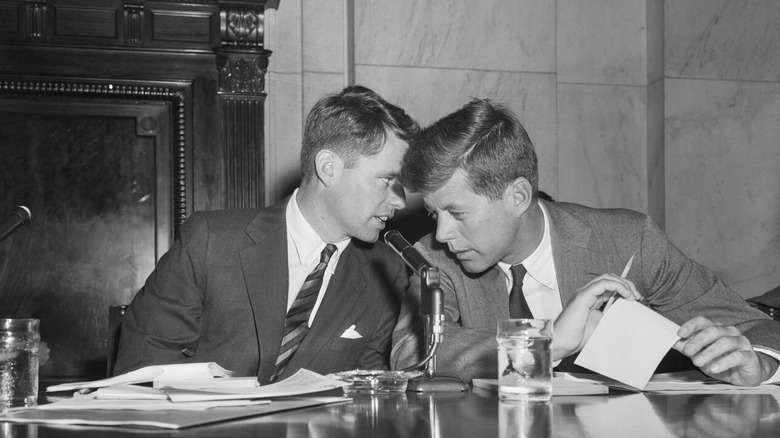Who Robert F. Kennedy Really Blamed For JFK's Death
When President John F. Kennedy's motorcade rode through downtown Dallas on the afternoon of November 22, 1963, no one could have known it would be his last day alive. The 35th president was visiting the city and waving to crowds from a customized Lincoln convertible limousine when he was shot by Lee Harvey Oswald. The photo of first lady Jackie Kennedy attempting to climb off the convertible as JFK lay slumped over after being shot is an infamous image of events that day. News of his death and how it happened stunned the world, and conspiracy theories of "who really did it" and why may never be abated.
Kennedy was a modern president of sorts and claimed many first titles. On November 8, 1960, he became the youngest American president to be elected and the first Irish Catholic to hold the office. During his short presidency, he was a very popular commander-in-chief and enjoyed some of the office's highest approval ratings, per Gallup. He also came from a large and prominent family in New England politics. Kennedy had eight siblings and one of them was Robert F. Kennedy (RFK), who served as U.S. Attorney General under his administration. In the aftermath of John F. Kennedy's assassination, RFK revealed his true feelings about his brother's death and believed that somehow his aggressiveness against formidable foes as attorney general led to the death of his brother.
Taking the blame for JFK's death
After learning that John F. Kennedy had been killed, RFK allegedly expressed foreboding. "I knew they'd get one of us, I thought it would be me," he said to an aide, according to The Boston Globe. Ironically, nearly five years later, that prediction came true for Robert (Bobby) Kennedy when he, too, was shot to death in an assassination.
Even though Lee Harvey Oswald is known as the assassin who fired the shots that killed JFK, Oswald was not known to be someone with the mettle, nor the marksmanship, to successfully pull off the killing of a sitting U.S. president — though some believe he may not have acted alone. There was little time to get his side of the story, however, as he was shot to death by a man named Jack Ruby in the basement of a Dallas police station while being transferred to a different jail just two days after the assassination.
Investigators felt they had their man in Oswald and never came forth with any other suspects, but RFK was suspicious and questioned if the assassination was retribution for diplomatic decisions of the Kennedy administration. He wondered if his actions as the U.S. Attorney General, in which he went after powerful organizations, may have instigated the killing. According to the Boston Globe, RFK speculated his brother's murder could have been tied to Cuba, the CIA, or the mafia, even coming to the realization that the three seemingly separate organizations seemed to intertwine in some areas.
'The dark side of American power'
Robert F. Kennedy once served as chief counsel for the Senate Select Committee on Improper Activities in the Labor or Management Field, which likely made him more enemies than friends. But this also means Kennedy's paranoia didn't come out of the blue; RFK heavily employed the use of investigative departments to go after organized crime and unions. He made a particular enemy of Teamsters Union leader, Jimmy Hoffa, who RFK accused of being in cahoots with the mafia by laundering millions of dollars through union members' pensions funds.
Jack Miller, his criminal division chief, once said, "Bob planned a war," according to Time. It was a fight that the FBI under J. Edgar Hoover was unwilling to initiate, but RFK and his long-time associate attorney Robert M. Morgenthau were up to the task even though they understood they were going after dangerous people.
Alternately, RFK became "JFK's principal emissary to the dark side of American power" as described in David Talbot's book "Brothers" (via The Boston Globe). He was appointed by JFK to oversee the CIA's intelligence unit involved with Cuba and its handling of the failed Bay of Pigs Invasion. That experience gave him insight into the "underbelly" of the inner workings between the CIA and some Cuban operatives, and he suspected that bad actors from those groups wanted the Kennedys out of power.
RFK always wondered if his efforts to take down large crime syndicates led to his brother's assassination. According to The Boston Globe, Morgenthau described RFK's struggle with the questions: "Was there something I could have done to prevent it? Was there something I did to encourage it? Was I to blame?"


